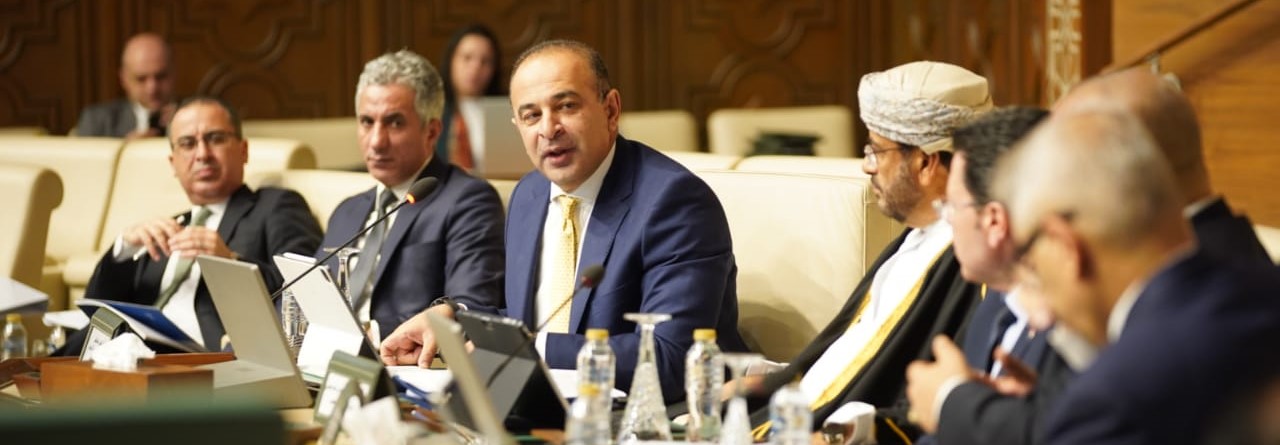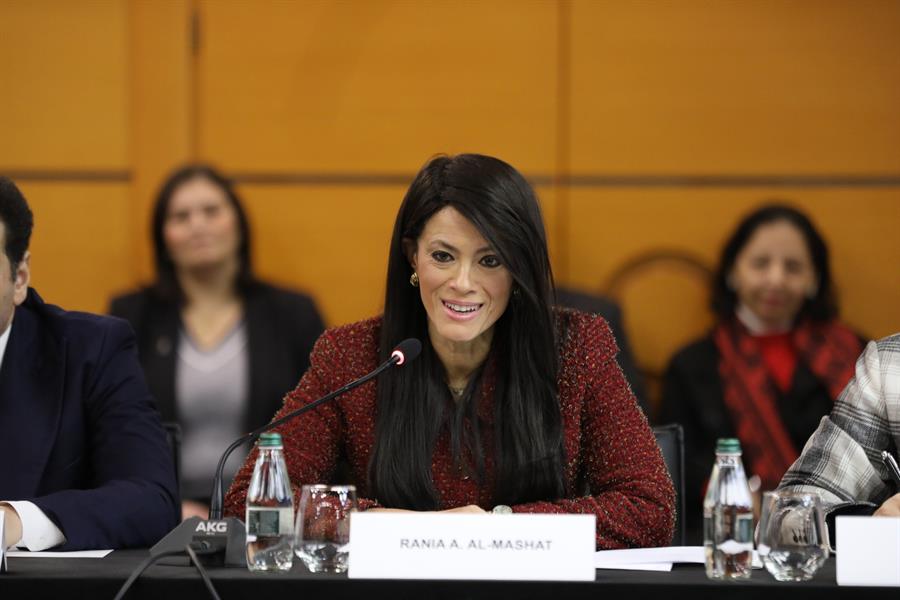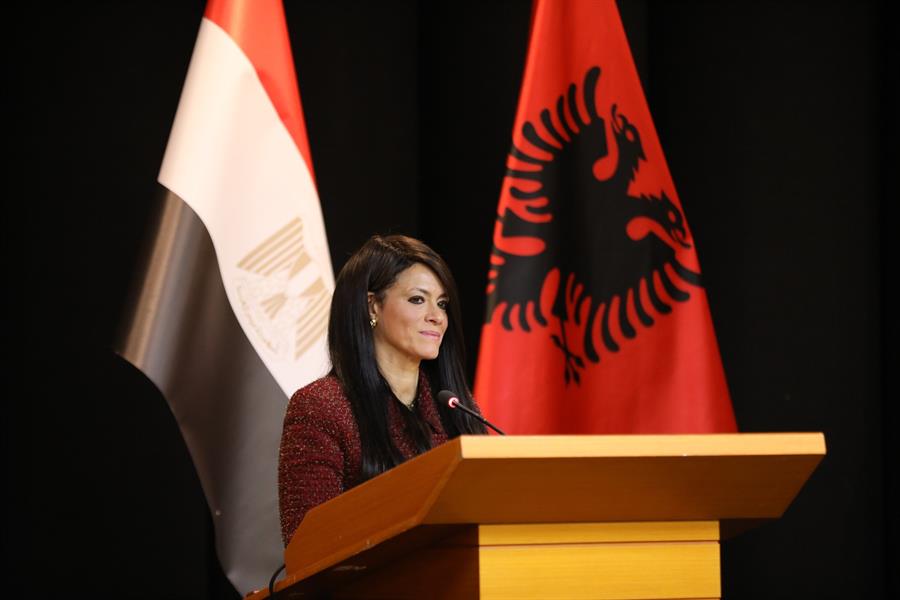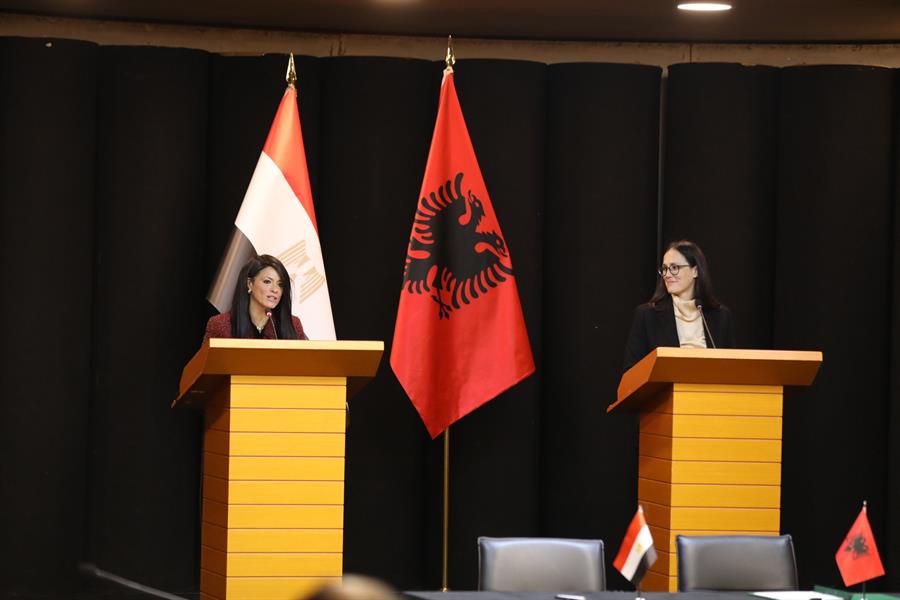Deputy Minister of Planning represents Egypt at ESCWA's 31st Ministerial Session

20 December 2023
Dr-Ahmed Kamali, Deputy Minister of Planning and Economic Development, represented Egypt in the ministerial segment of the thirty-first session of the United Nations Economic and Social Commission for Western Asia (ESCWA) at the headquarters of the Arab League.
During his participation in the first discussion panel of the ministerial meeting on presenting the Arab Vision 2045 on the path to achieving hope through thought, will, and action, which was entitled “The starting points and pillars of the Arab Vision 2045,” Kamali appreciated the efforts made in developing the Arab Vision 2045.
Kamali stressed the need for this Arab development vision to be supportive of the national development plans and strategies in the Arab countries, including in Egypt, which is represented by the National Strategy for Sustainable Development “Egypt Vision 2030” in its updated version launched in November 2023.
Kamali added that due to the many current global economic, geopolitical, and environmental challenges hindering the development process in various countries, especially developing countries, it has become necessary for all governments to strengthen their national and local capacities to accelerate the implementation of SDG.
Kamali said that technology, digital transformation, creativity, and innovation have played essential roles in the development process and in improving citizens' standard of living in all countries, in addition to facilitating access to basic services such as education, health, housing, and social protection.
Kamali referred to the “Technology as a Force for Good” report for 2023, which explained that technology, innovation, and industry have become critical factors in determining the extent of achieving SDGs and the needs of citizens.
Kamali pointed out that the report said that technology could reduce the cost of achieving the SDGs by up to $ 55 trillion, allowing the achievement of 103 of the 169 goals of the Sustainable Development Goals.
Kamali continued that although technology can provide innovative solutions to the current challenges facing the entire world and the Arab region in particular, the continuing digital gaps between and within countries still stand in the way of progress on a large scale about the UN SDGs and hinder the effective use of new data.
Kamali referred to the Egyptian efforts in the field of technology, adding that “achieving technological progress and innovation” represents one of the main capabilities of Egypt’s updated 2030 vision, which focuses on transforming the concept of technological progress and innovation from a mere scientific term to an advanced method that contributes to solving many problems in the world.
Kamali highlighted the Egyptian Ministry of Communications and Information Technology’s work on developing the National Information Technology Strategy for 2030, out of its belief that no country can seek to achieve desired and sustainable progress without a strong ICT sector to advance development.
Dr. Ahmed Kamali also pointed out that Egypt launched the first national strategy for artificial intelligence in 2021, which revolves around 4 basic pillars: artificial intelligence for government, development, capacity building, and international cooperation, in addition to four main enablers: governance, data, ecosystem, and infrastructure.
Kamali added that as a result of these efforts, Egypt advanced 55 places in the government readiness index for artificial intelligence in 2022, ranking 56th out of 162 countries, compared to 111th out of 194 countries in 2019, according to the government readiness index report for artificial intelligence (AI).
Kamali stressed Egypt's keenness to play an effective global role so that Egypt would be the first Arab and African country to be guided by the principles of the Organization for Economic Cooperation and Development (OECD) regarding responsible artificial intelligence, adding that Egypt assumed the position of Vice-Chairman of the Ad Hoc Expert Group of UNESCO.
Kamali referred to the clear increase in publications in the field of artificial intelligence, with the number of publications increasing from about 50 publications in 2000 to about 450 publications in 2022, adding that women are increasingly writing articles and publications about the field of artificial intelligence in Egypt, with the percentage increasing from about 24% in 2010 to about 32% in 2022.
Dr. Ahmed Kamali also referred to the Egyptian government’s efforts to digitize many of its services provided to citizens, which included services for developing technology centers in neighborhoods and cities, and mobile phone technology centers throughout the country.
In this context, the importance of benefiting from multiple Arab experiences and enhancing Arab cooperation to overcome the digital divide must be emphasized, according to Kamali.
Kamali emphasized the pioneering role of governments in developing technology, digital transformation, innovation, and creativity, and strengthening the necessary skills in a changing world.
Regarding the challenges of the technology sector, Dr. Ahmed Kamali explained that there are two main challenges, the first of which is related to investments and the creation of a strong infrastructure on which the information infrastructure is based, adding that any infrastructure that needs development, requires large investments, which requires the participation of the private sector in these investments.









